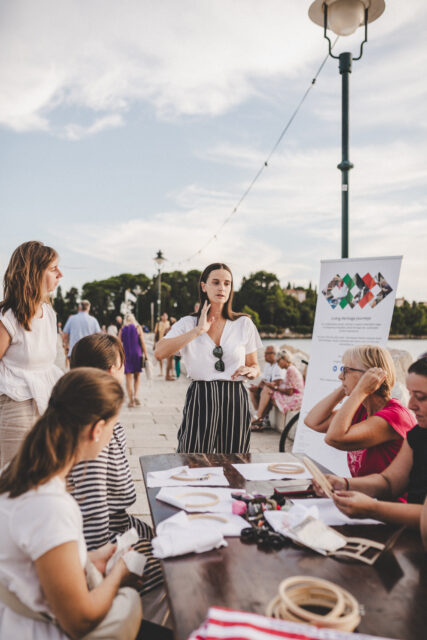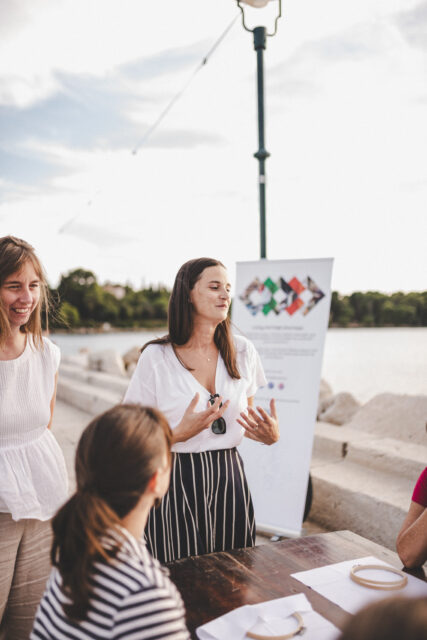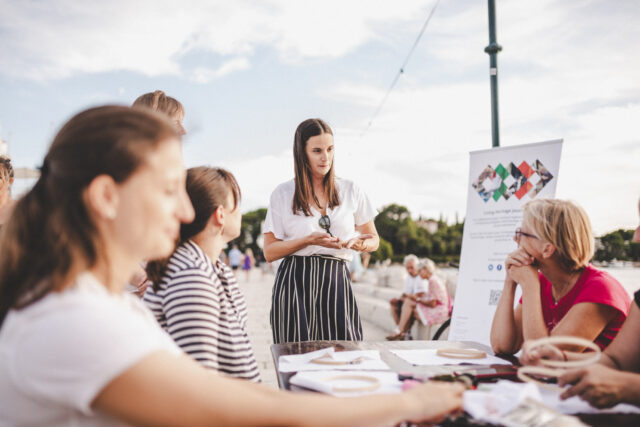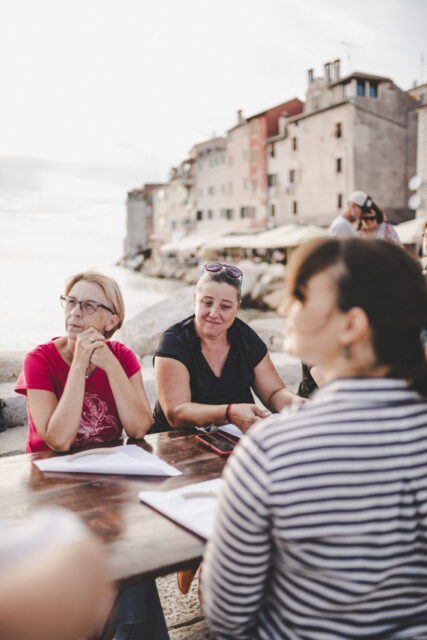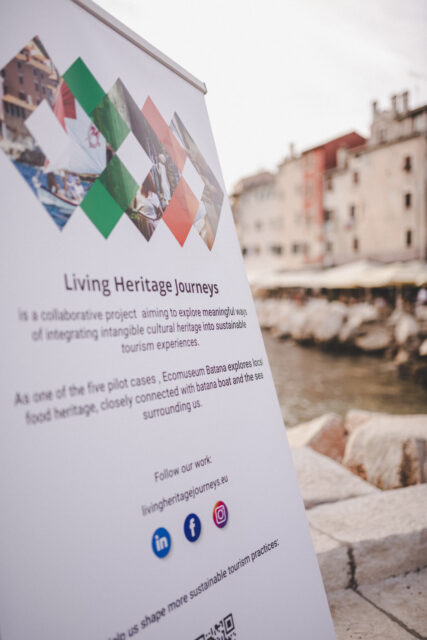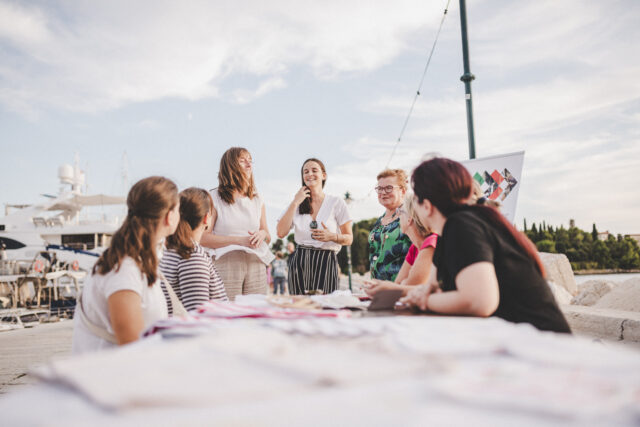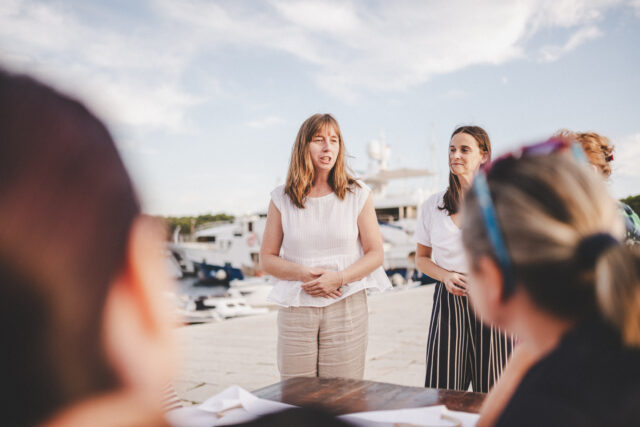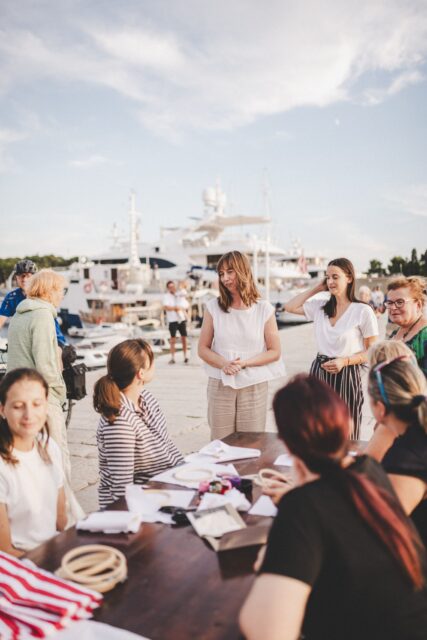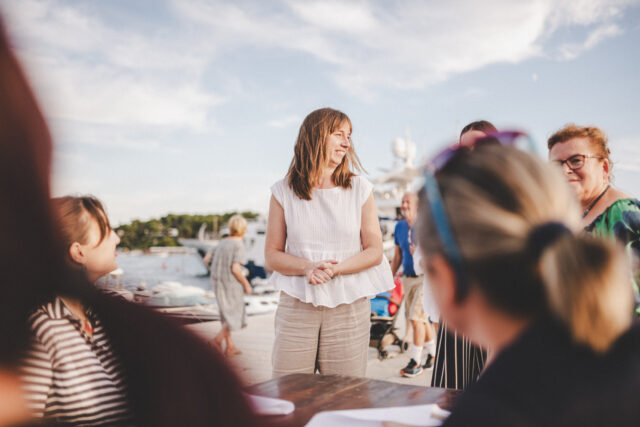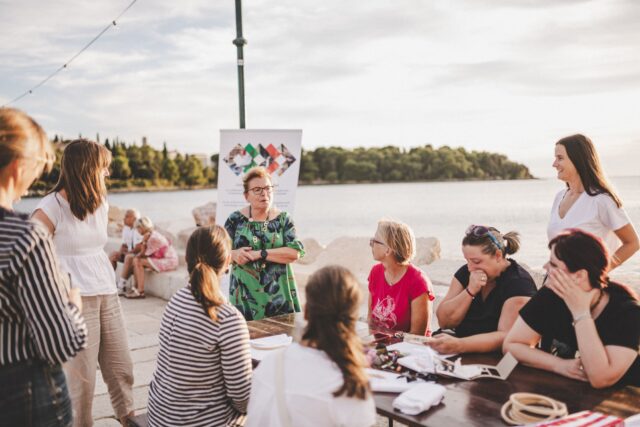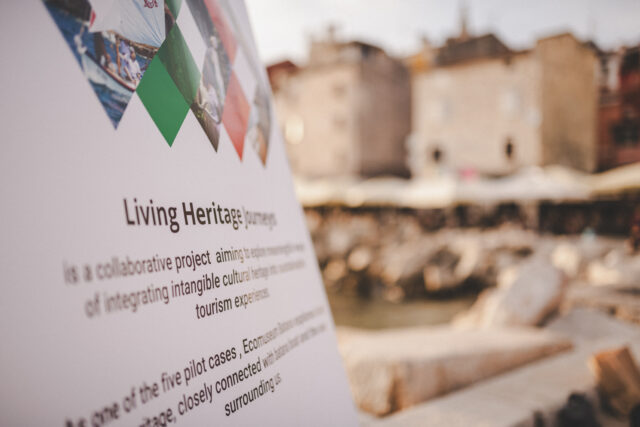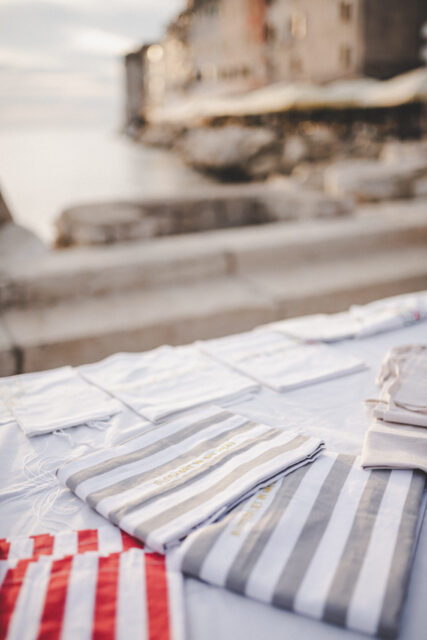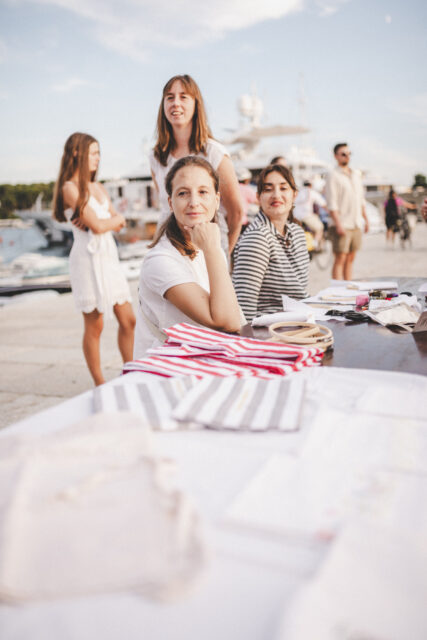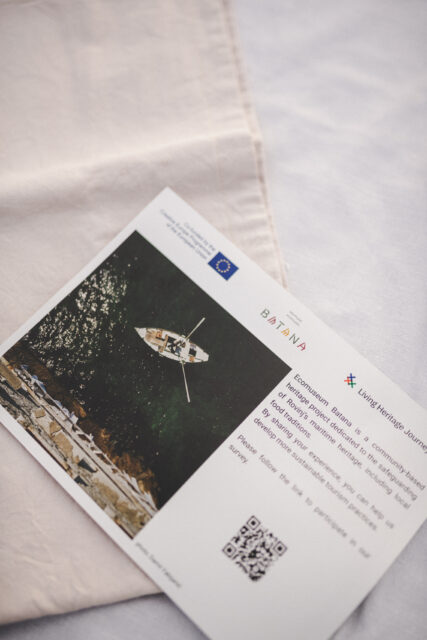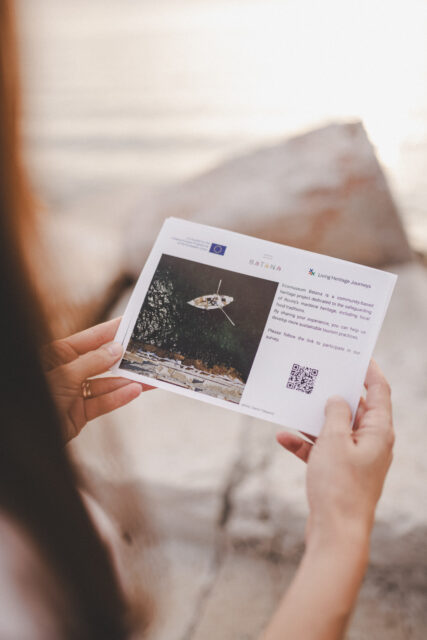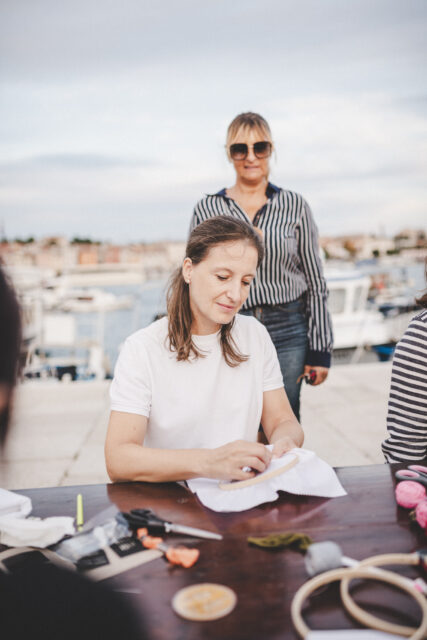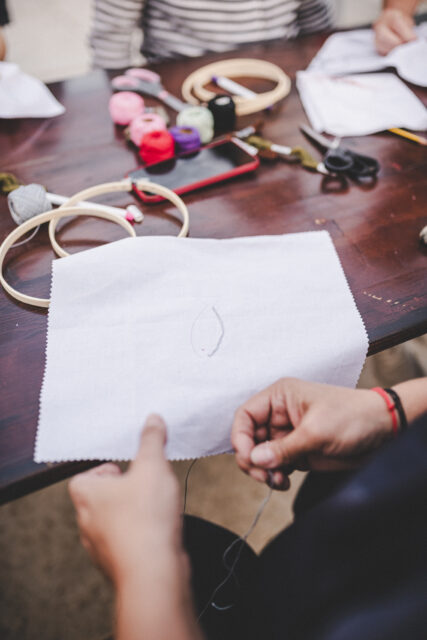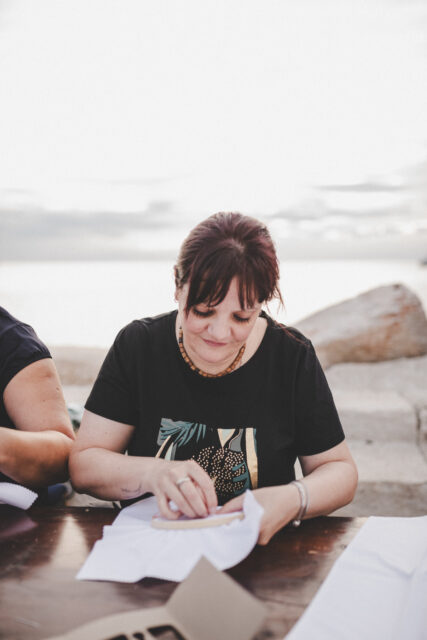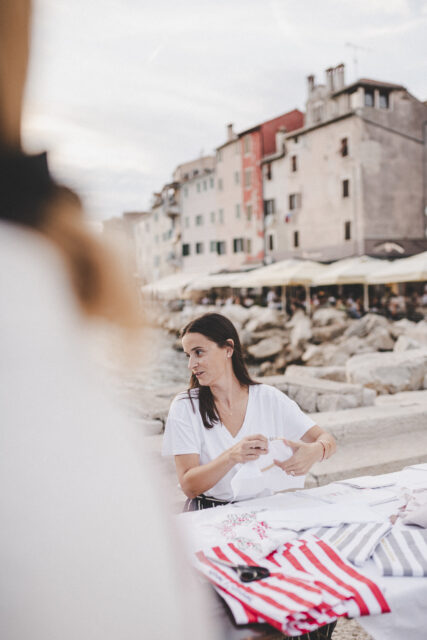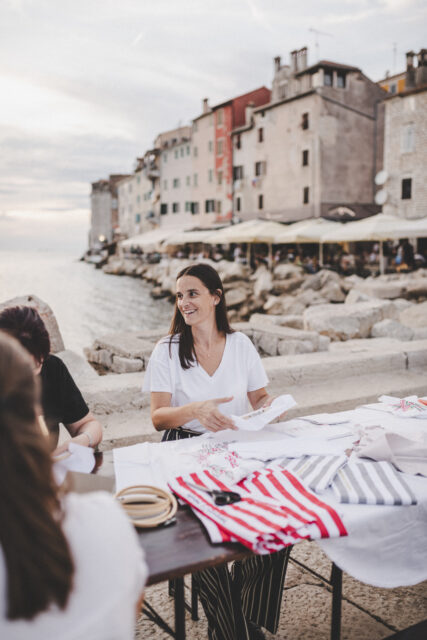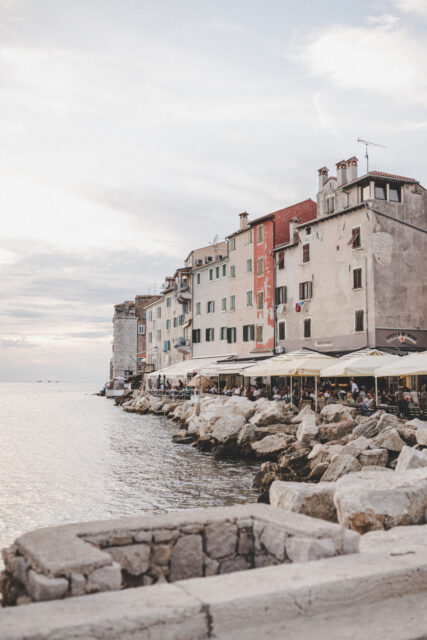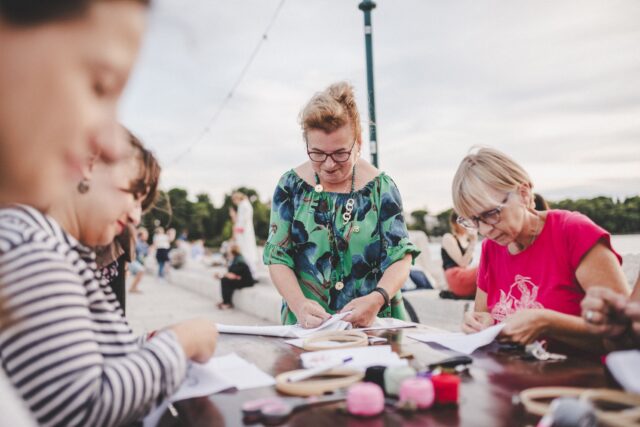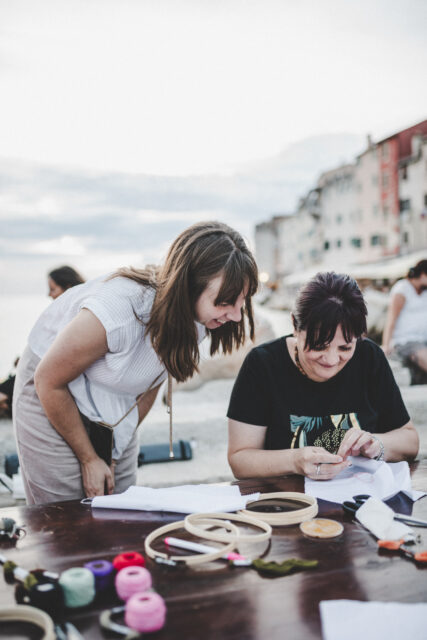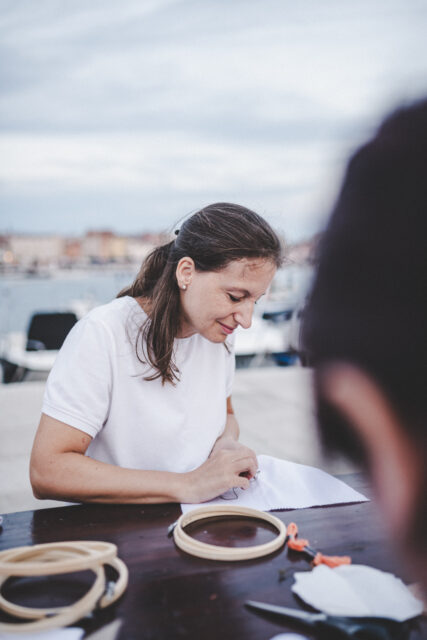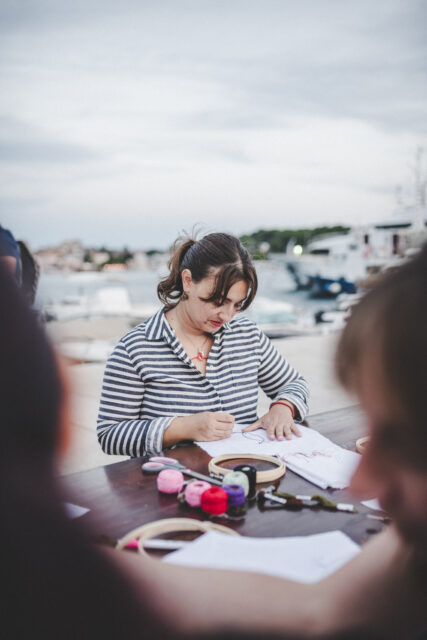Grasping the fundamentals
The first phase of the project gathers deep insights into the living heritage practices, heritage communities’ visions and wishes, visitor expectations, policy environments, and inspirational practices.
Here the Design thinking stages of Empathise and Define play a key role.
- Empathise involves a human-centred process to understand people and their needs.
- Define draws on the insights gathered to collaboratively determine the projects specific challenges and next steps.
Desk research
Policy-level key lessons:
Croatian national tourism and culture development plans recognise the value of heritage (including living heritage) in addressing seasonality and regional disparities, supporting investments in heritage interpretation (e.g. interpretation centres), thematic routes, and cross-sectoral innovations to strengthen sustainable, year-round tourism.
Field research
Visitor-focused key lessons:
- Workshops on Mediterranean and traditional cuisine, promoted as short, interactive experiences based on heritage interpretation principles, could enhance tourists’ appreciation of local heritage, their engagement, and prolong the season.
- Ensure clear, authentic, and fairly priced gastronomic experiences that differentiate between local, regional, and Mediterranean traditions and avoid superficial, overpriced “tourist traps.”
- Increase visibility of traditional cuisine through diverse formats—including live demonstrations, storytelling, themed venues (e.g. Spacio), and both guided and self-guided experiences—to deepen visitor connection with local heritage.
Stakeholder Workshops
The fillet killed the fish!
Participatory workshop Rovinj - © Ajoj
Community and bearers’-focused key lessons:
There is a strong need to safeguard traditional food practices and identity in the face of tourism-driven change, by improving service quality, promoting local ingredients, and fostering collaboration between cultural bearers and the tourism sector.
